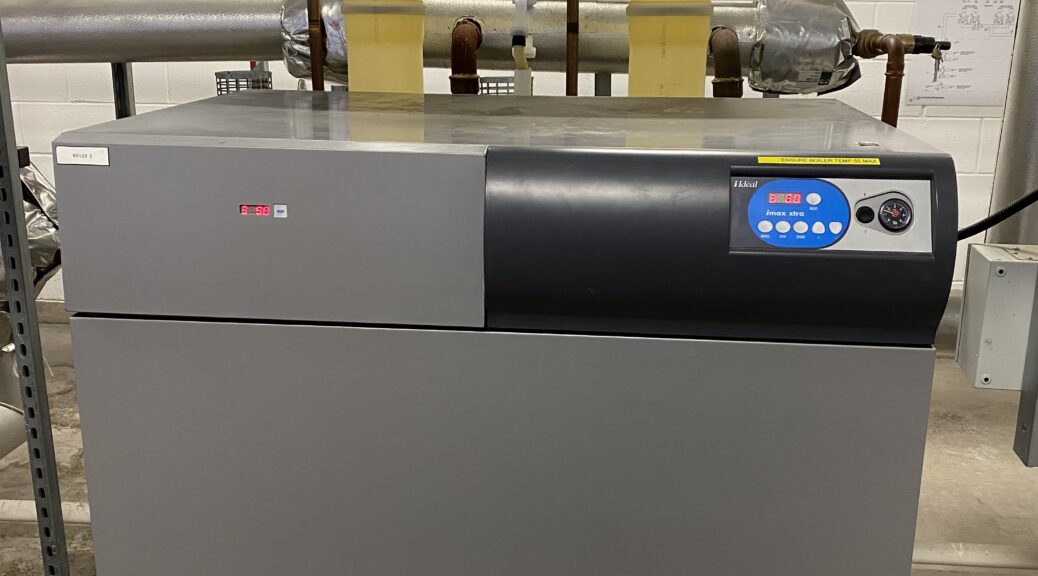In the same way that there are different types of boiler fuels and designs, there are also different types of boilers. Although the science behind these boilers largely remains the same, slight variations in design mean that certain models are far better suited to specific tasks than others.
So it goes without saying that different types of boilers are suited to different business applications. It’s important that the boiler you purchase meets your daily requirements while also keeping costs low. Let’s take a look at a few different types of boilers, summarising their designs and applications. If you’re in any doubt, our KES Facilities engineers are here to help answer your questions, install your new commercial boiler, and set-up your essential maintenance schedule too.
Boiler Basics
Do you remember your basic physics from school? Do you remember learning about heat transfer, combustion, and boiling points? It’s OK if you don’t! After all, why would you need to remember all of those confusing processes when they’re not a significant part of your day-to-day life?
So before we get into the finer details of the different types of boilers, remember that the basic principle behind boilers is to provide heating. Normally, boilers burn fuel to create steam or heated water. That medium is then transferred throughout a building (in radiators or otherwise) to conduct heat to different areas of the property.
Simple enough? Good – let’s take a look at the many different ways this is achieved.
The Different Types of Boilers
Fire-Tube Boilers
Fire-tube boilers stick to this basic design very closely – their design is old and, these days, is considered basic. A water-filled chamber contains several tubes that intersect it. When heated gas is directed along the length of these tubes, the walls of the tubes heat up and conduct that energy into the stored water so that it reaches boiling point. This produces steam which is captured at the top.
These boilers are most efficient when there is a regular demand for steam, and most suitable for low-pressure applications. They come in both dryback and wetback design.
Watertube Boilers
Now let’s imagine the inverse of a fire-tube boiler! Instead of heated gas within the tubes, with watertube boilers, well…you get the idea – water is stored within the tubes and the gas is outside. The tubes again run the length of the boiler.
Since water is heated in smaller quantities, this makes for a quick heat transfer. High-pressure demands, systems with varying requirements, and industrial-scale processes all benefit from watertube boiler arrangements.
Typically, watertube boilers are the go-to set-up for comfort heating applications. These boilers are easier to inspect and maintain, and are far more common today than conventional fire-tube boilers.
Electric Steam Boilers
Another type of boiler commonly used for commercial applications these days is the electric steam boiler. These simple systems are used for smaller, low-demand applications in laundries, factories, and even hospitals.
Once again, the focus is on heating water and producing steam, but this time through electrical resistance. With this boiler there is no fuel, nor is there combustion. Electric steam boilers are considered the most ‘green’ boiler with low noise, compactness, and a generally small makeup. Another benefit is that these systems are simple, and inspecting and removing parts is straightforward.
That being said, these advantages come at a cost – literally: electric steam boilers are some of the most expensive boilers on the market. It is not uncommon to see electric steam boilers being used in conjunction with other types of boilers.
Other Types of Boilers
We could go on and on, but these are the three main types of boilers that you can expect to find for use on commercial sites. Condensing boilers are also efficient, but these operate on a much smaller scale. Flextube boilers are growing in popularity, and these too are easy to inspect and maintain. Combi boilers, conventional boilers, and even system boilers are also used throughout the United Kingdom, but mainly in a residential setting.
KES Facilities and Your Boiler Needs
As you can see, just about anything to do with boilers requires skill and experience. Our talented technicians are trained on all of the boilers we’ve mentioned in today’s article, and they know exactly how to install, service, repair, and maintain that boiler for you.
As part of the installation process, we always strive to ensure that you’re getting the type of boiler best suited to your business application. Call us today for advice, ask us any questions you have, and ease any doubts about the suitability of the boiler you have in mind.
We’re on-call throughout Yorkshire and ready to help whenever you need us.


